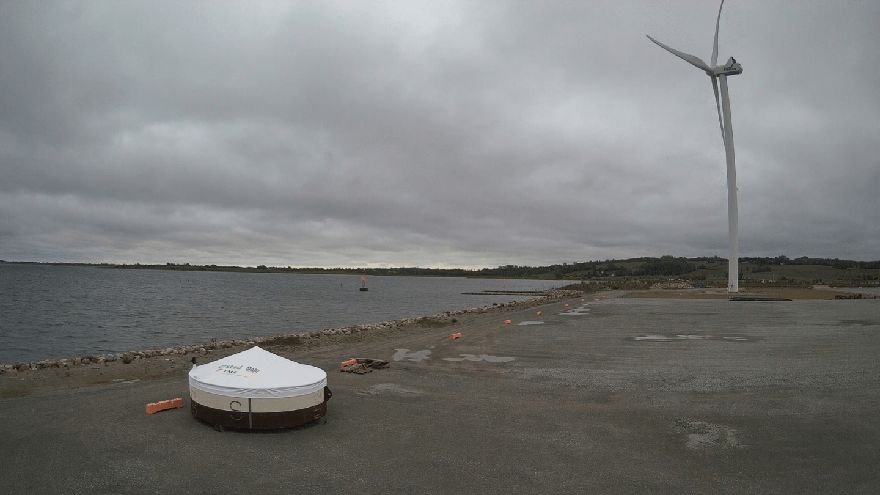
Following a year long test, renewable energy company
Ørsted, alongside suppliers
TME and
CS Wind Offshore, has approved a recyclable tarpaulin material for monopile covers. This will prevent an average of 10 tonnes of landfill waste per offshore project.
Also known as TP covers, they protect the foundation and cables of offshore wind turbines during construction. Ørsted has been determined to address the environmental challenge posed by these covers, which need to be of sufficient quality to shield monopiles from the elements.
To solve the problem, Ørsted, first tested every option for industrial recycling of the material that is traditionally used for covers. As none of the options worked, its partner TME proposed a new recyclable material which has been tested and proved fit for use both by a physical outdoor endurance test at CS Wind Offshore’s facilities and subsequent laboratory testing.
The material will be used for the first time during the construction of Hornsea 3, the world’s largest offshore wind farm, now that rigorous tests have determined it can protect valuable offshore assets. Once construction has finished, the material can be recycled.
Rasmus Uldahl Kjeldsen, head of construction sustainability at Ørsted, said: “We believe protecting our environment can go hand-in-hand with innovation and efficiency. This collaboration with TME and CS Wind Offshore shows that designing out waste from the beginning is possible and can be done without compromising quality or increasing cost.”
Jess Westcott, Ørsted’s Hornsea 3 project director, said: “One of our ambitions on Hornsea 3 is to be the ‘greenest’ offshore wind farm yet. Using monopile covers that can be recycled is another positive step on that sustainability journey.”